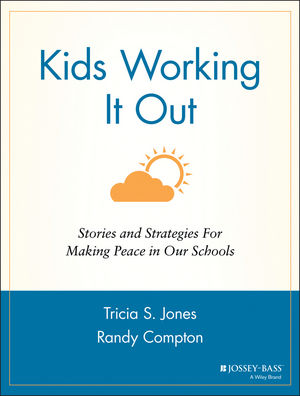Kids Working It Out: Stories and Strategies for Making Peace in Our SchoolsISBN: 978-0-7879-6379-8
Paperback
384 pages
December 2002, Jossey-Bass
 This is a Print-on-Demand title. It will be printed specifically to fill your order. Please allow an additional 10-15 days delivery time. The book is not returnable.
|
||||||
"Highly Recommend." (CHOICE, September 1, 2003)
"Given the current social climate, Kids Working It Out is an important and engaging tool that helps students, parents, teachers, and administrators deal seriously and creatively with violence, conflict, anger, alienation. Unlike most books of this nature, I was happy to see that the voices and the visions of young people are at the very heart of the dialogue and the resolutions. If implemented, the strategies outlined in Kids Working It Out would make our world, not just our schools, a better and safer place."— Danny Glover, actor and parent
"An extraordinary book on students managing their own conflicts.
. . . The book gives a stunning view of the conflicts present in
schools and the ways they can be constructively managed. . . . both
deeply interesting and informative."
— David W. Johnson, professor of educational psychology,
University of Minnesota
"A comprehensive, must-read volume on Conflict Resolution Education. Teachers will be inspired by the innovative work of their peers, while parents will be motivated to make sure these important life skills are available in every school."— Ellen Raider, cofounder, International Center for Cooperation and Conflict Resolution, Teachers College, Columbia University
"From smart strategies to quality resources, the authors provide
many excellent examples of the current best practices. Most
impressive are the powerful actions and words of youth who
demonstrate their understanding of peacemaking."
— Donna Crawford, executive director, National Center for
Conflict Resolution Education
"Students deserve to be in environments in which they are
safe— physically, social-emotionally, and intellectually.
This book explains to educators, policymakers, and parents how this
can happen in a wide range of schools and communities."
— Maurice J. Elias, professor, Rutgers University and vice
chair, Collaborative for Academic, Social and Emotional Learning
and author, Raising Emotional Intelligent Teenagers



